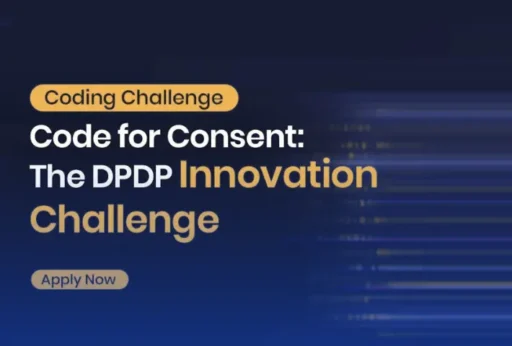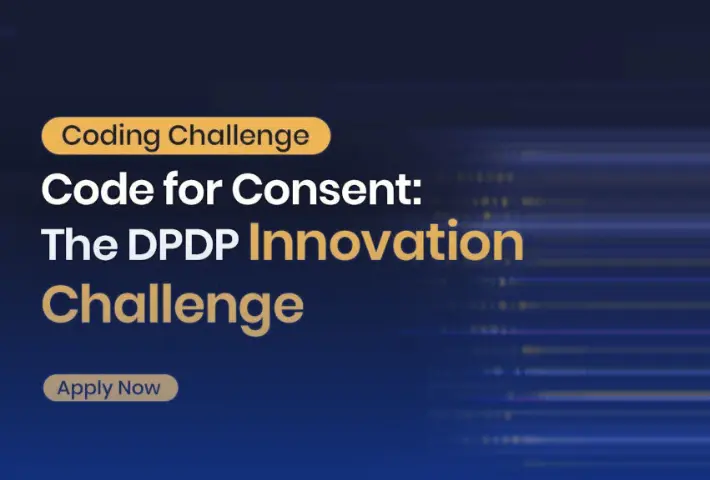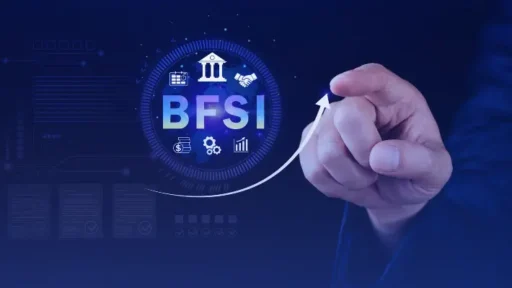With the Digital Personal Data Protection Act (DPDPA), 2023, India has made a definitive move to protect the digital rights of over a billion citizens. However, having a law is only the first step – what counts is how it is implemented. Compliance by all actors, from a small town NGO to large tech corporations, must be inclusive, affordable, and ultimately feasible. This is just one of the reasons for the “Code for Consent” Innovation Challenge. This national challenge invites Indian startups and MSMEs to develop an open, modular, and DPDPA compliant Consent Management System (CMS) – a privacy-first and DPDPA compliant solution that can be plugged into real-world applications in a variety sectors. Drawing from Digital Public Goods (DPGs) and aligned with India’s vision for Digital Public Infrastructure (DPI), the challenge is not just about writing code; it is about building trust, building rights, and reimagining the future of digital governance.
The challenge invites innovative Indian startups and MSMEs to co-create a scalable, inclusive, DPDPA compliant CMS and will be a step towards realizing the vision of Digital India.
Rationale Behind ‘Code for Consent’
Despite having been in place since 2018, compliance with the EU’s General Data Protection Regulation (GDPR) has remained elusive for many organizations. A study published in 2023 said:
- Only 20% of businesses in Europe consider themselves completely compliant.
- 53% are still in the process of implementation.
- 27% have not even started.
This should be a wake-up call for India: regulation alone does not guarantee compliance. Even in developed economies with high digital maturity, implementation gaps persist. Now, let’s bring that into the Indian context.
The Indian Reality
India is not a high-paying market for enterprise software, and many businesses—especially MSMEs, startups, NGOs, and regional entities—lack the budget and technical capacity to implement expensive compliance tools. If the Digital Personal Data Protection Act (DPDPA) is to succeed across the board, India must leapfrog the traditional enterprise-heavy approach to compliance.
The AAA Framework: A Blueprint for DPDPA Success
The success of India’s Digital Personal Data Protection Act (DPDPA) hinges on a three-part strategic foundation—Awareness, Access, and Amount. This AAA Framework ensures that compliance is not only achievable, but equitable and scalable.
A. Awareness – The first stage of compliance is awareness. People must understand their rights – for example, to access their information and data, correct the information if it is inaccurate, or (or withdraw consent). Similarly, organizations must comprise a clear understanding of their obligations under the law and entire levels of consumer and digital literacy across the regulators, public authorities must have consistent levels of training to be effective in successfully enforcing DPDPA. This can only be accomplished with multi-lingual awareness campaigns, digital literacy programs, readiness programs for compliance that are sector and geography specific.
B. Access to tools and infrastructure – DPDPA is more than a legal shift, it is a technological challenge. Small businesses, NGOs and Government agencies need access to low-cost, interoperable tools for managing consent, tracking the use of data, and reporting breaches. Access to APIs, open-source templates, safe hosting, and localized infrastructure, especially in Tier 2/3 or rural areas is a priority. If this is not available compliance will remain a privilege of the national or large enterprise-level.
C. Amount–Cost of compliance – India has an incredible ability or strength to innovate by working with frugality. If compliance is expensive or relies on expensive proprietary tools, smaller organizations will either choose not to comply, or they will cut corners. This is not getting to the spirit of the law. Instead DPDPA should help encourage low-expense or scalable compliance solutions that enable participation and create opportunities to develop them across the whole economic spectrum that compliance can be a strategic advantage to the business, rather than an overhead expense.
Why we need ‘Code for Consent’ and Digital Public Goods?
For DPDPA to be truly implementable at scale and inclusively, we need Digital Public Goods (DPGs)—open, auditable, and reconfigurable components that:
- Help reduce compliance costs
- Facilitate transparency and trust
- Can be shared across sectors
- Can also be localized into the local Indian languages.
- Promote innovation by startups and civil society.
The mission challenge is about the e-governance and public sector, and concerns: “To build a modular Consent Management System (CMS) that is aligned with Data Fiduciaries’ existing platforms, and DPDPA, 2023.” The groups will have to navigate technical, functional and operational requirements specified by the Government.
Scope of the Challenge – The scope is to design and build a DPG-compliant CMS as described in the Business Requirement Document (BRD) issued by the National e-Governance Division (NeGD), under MeitY. A compliant CMS must be:
- Modular and API ready
- Interoperable across platforms
- Aligned with DPDPA, 2023
- Secure and privacy-by-design compliant.
- Provide support for use-cases across public and private sectors.
This CMS will serve as a key enabler for consent lifecycle management, data flow auditability, and rights redressal.
Why India Needs a ‘Code for Consent’ Movement
India is at a critical juncture in its digital governance journey. As the Digital Personal Data Protection Act (DPDPA) starts to take shape, there is an opportunity to create a privacy-first foundation that is inclusive, scalable, and cost-effective. However, for organizations to realize this vision, the focus must be on more than simply legal obligations. Open-source infrastructure, Digital Public Goods (DPGs), and Digital Public Infrastructure (DPI) must be provided to allow these organizations to comply, regardless of their size or current capacity.
Open-source tools and standardized APIs would allow for the rapid realization of ideas, especially within the public and private sectors. Organizations of all sizes would have the tools, and can follow reference implementation, for rapid development and deployment of consent and data governance workflows. This is particularly important in a country where there is such a large range of resources, and digital literacy paths and levels are possible.
By democratizing access to foundational compliance tools, even MSMEs, NGOs, and rural initiatives can participate in the privacy ecosystem in India. The traditional model of privacy compliance has largely excluded MSMEs from this space, as only the largest companies could afford the sophisticated data protection infrastructure. Compliance no longer has to be a luxury but a right in this model.
Code for Consent—The Future of Digital Trust
A public and open foundation supports innovation, enabling developers and entrepreneurs to create sector-specific solutions, localize features, and iterate for automation. It aims to support a vibrant and adaptive ecosystem that can support the desire for a dynamic India.
Open platforms also alleviate vendor lock-in, encouraging collaboration and transparency rather than overly expensive proprietary options.
Data trust is the basis of data protection. Because open-source code is auditable and transparent, it solidifies the commitments around trust and privacy between citizens, regulators, and organizations.
Code for Consent is more than software in that it aims to build a national foundation for digital trust. If done correctly, India can demonstrate how to lead the world through affordable, transparent, and transformational privacy compliance.
This vision relies on open-source platforms, DPGs, and DPI that drive compliance costs down to near-zero. As UPI, DigiLocker and Aadhaar did for finance and identity, Code for Consent can enact the gift of data privacy.
The Code for Consent Innovation Challenge starts as a competition but becomes a national mission. Our mission is to arm India’s startups to create privacy-first tools that will make our data rights real and resilient.
The time is now. Let’s Code for Consent—and code for tomorrow.






